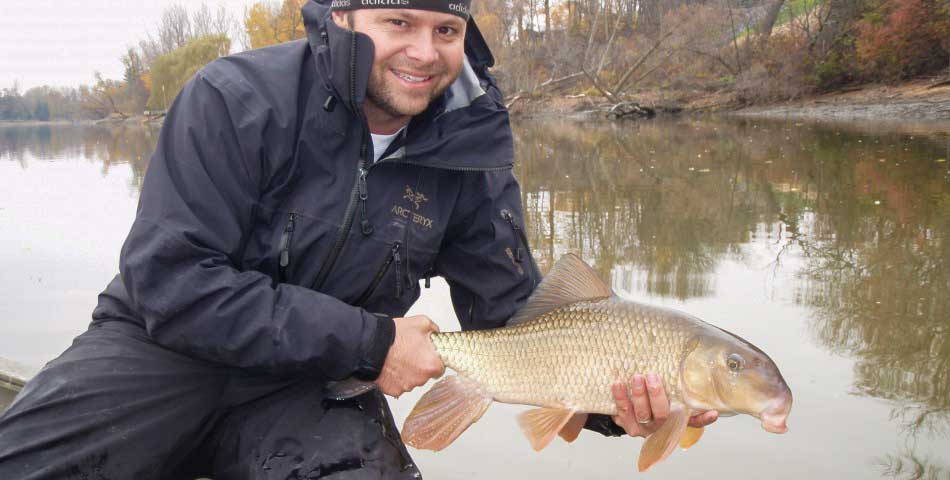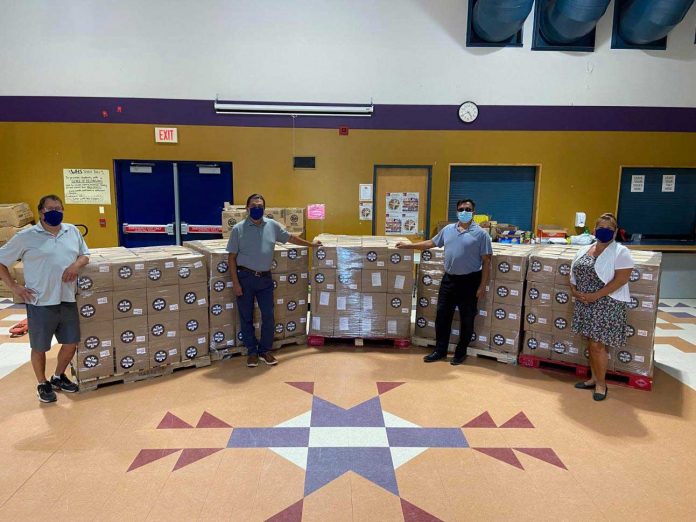OTTAWA – Anyone who has cast a line in search of a fish in the last year—whether they only went out a couple of times or spend every weekend flogging the water—is asked to participate in an angler survey to assess the impacts of COVID-19 on recreational fishing as part of an effort to better inform the government’s response to a possible second wave of the pandemic.
“A lot of people seem to already be indicating that (fishing) is really a relief for them, an opportunity to get into nature when they’re on a boat, maybe with a son or a daughter. There’s not much that could be safer, from a COVID perspective,” said Dr. Steven Cooke, a Carleton University professor who is leading the survey alongside University of Ottawa colleagues.
The survey, which will be linked on this newspaper’s website at manitoulin.ca, takes less than 15 minutes to complete.
Its goals are multiple: it aims to understand how the pandemic has impacted angling behaviour in terms of how often one goes out to the water, if their catch and/or release numbers have changed and how they have modified their spending.
A second part involves questions about anglers’ opinions on the government actions toward their hobby as part of its COVID-19 response. Some early actions included closing boat ramps, cancelling tournaments and discouraging people from multiple families from fishing together.
When complete, the survey should offer indications of whether anglers have used more mom-and-pop shops or big box stores, as well as provide valuable insight into how the government might best react to a possible second wave of the virus.
The survey is broken up to two periods and two years. For each of 2019 and 2020, anglers are asked to give an overview of their fishing activities from roughly March 15 to May 14, then a second period from May 15 to July 15.
This structure provides a baseline to compare pre- and post-pandemic fishing activity.
In addition to the insight to government responses and angler behaviour, the survey will also give an indication of how many more people are casting lines and if former anglers may be coming back to the craft.
“I’m a fisheries scientist and I care about conservation as well. Why might more anglers be a good thing? The more people fish, the more people will connect with nature and think about (the environment) when they make their purchasing decisions, decide where to pour their used motor oil and so on,” said Dr. Cooke, adding that in an urbanized world many people have lost their connection to nature.
The team’s initial goal is to have 5,000 responses within a month after the survey launched on August 4. This will enable the team to collect the responses, make conclusions from the data and write a report to come out by October—hopefully, in time to help inform government decisions on second-wave responses as they pertain to angling.
Five-thousand respondents may seem to be a large number but Dr. Cooke said a Facebook demographic search for people in Ontario between the ages of 18 and 65 who have fishing or recreational fishing in their interest lists brought up two million results.
Dr. Cooke said the team would be pleased to far surpass their goal and he asked anglers to pass along the survey to fellow fishers of all sorts.
The team is running off no budget for the survey and paid for a few days of social media promotions, but otherwise is relying on people sharing the survey with their colleagues. They have also partnered with some celebrity anglers to spread the word of the survey.
Dr. Cooke is also working on a global survey of about 150 researchers who are assessing the slowdowns in commercial shipping traffic on fish behaviour and populations.
To complete the survey, visit manitoulin.ca for the link or Dr. Cooke’s lab’s Facebook page @CookeFECPL.




